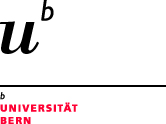The Federal Licensing Exam in Human Medicine (FLE) according to MedBG was held for the 12th time in August and September. What was special about this year's event was that the students took the written part of the FLE digitally on tablets and no longer with paper-based exam booklets and answer sheets. The practical part of the exam has already been supported digitally since 2015, with the candidates' practical skills being assessed with checklists on tablets. Passing the EPH is a prerequisite for the licence to practise clinically and for further training of the future doctors. It is described in the Medical Professions Act (MedBG), which forms the legal basis for all academic medical professions (human medicine, dentistry, veterinary medicine, pharmacy and chiropractic). A special characteristic of the federal licensing examinations in Switzerland is that they are conducted in several languages.
A milestone in exam development
The successful implementation of a coordinated digital written exam at national level is a milestone not only for medical examinations, but also for modern exam development. It is based on a technical development that has been ongoing for more than 10 years. The Institute for Medical Education (IML) of the Medical Faculty of Bern has systematically developed and continuously optimised the software and the entire infrastructure required for it. With the "Examic Assessment Suite®", the IML provides three products: "Measured" for written exams and "EOSCE" as well as “Valuatic” for practical exams. The software packages each consist of several, mutually complementary apps that are used before, during and after the exams (exam creation, exam execution, technical exam monitoring, analysis of exam results). The entire infrastructure had already been tested in advance at all medical faculties in Switzerland in local exams and has in some cases been firmly integrated into the examination process of individual locations for several years. The realisation of such complex projects depends on the optimal combination of technology and organisation. Successful implementation is linked to the trusting cooperation and good preparation of all those involved.
Communication and coordination
Digital assessment involves an increased need for communication and coordination between EPH organisers at local and national levels. Digital implementation is more "dynamic", because critical technical events can occur during an assessment, which could not occur during a paper-based exam. For example, different local IT infrastructure is used in six locations spread over Switzerland and different computer technology is used. A secure and reliable infrastructure and an organisationally optimal implementation are therefore indispensable prerequisites for the digital conduct of an exam as large as the EPH.
Gaining the trust of all Swiss faculties and maintaining it over several years was a key moment in this project. Setting up the organisation is time-consuming; trust increases efficiency considerably and ensures the timely implementation of such complex projects."
Arrival in the digital age
The decisive advantages of the digital exam are new types of questions and their enrichment with diverse media as well as more flexible exam questions and content. Students benefit from navigation options and no longer have to transfer their answers to answer sheets, which is prone to error. The production and distribution of paper exam booklets, comment sheets and electronically readable answer sheets is no longer necessary. After the exam, the students' answers and comments are immediately available electronically. This eliminates the need to read the answer sheets and decipher the handwritten comments.
This year’s Federal Licensing Exam in Human Medicine was the first time that a common exam was realised according to the latest technical possibilities.
The digital exam also represents a milestone in quality assurance: The EPH is intended to test the knowledge of future doctors as close to practice and reality as possible. The use of videos is a step in this direction. The new technology also makes it possible to expand the classic multiple choice questions with new formats. Examples are long menu questions where answer alternatives only appear after initial typing, or question sequences where the next question only appears after the previous question has been definitively answered.
For the IML team, it is a great pleasure that we were able to confirm the trust placed in us by the partner faculties through the first successful implementation. However, the rule is that after the exam is before the exam. The whole team is already working on further developments and optimisations.
About the Institute for Medical Education
The IML combines experience and expertise in teaching, assessment and development. As a national centre of excellence, the IML supports medical teaching and assessment at the highest level. Since its foundation in 1971, the Institute has been carrying out projects for the Swiss government, medical faculties and other external clients at home and abroad. Through further development and cooperation, new services are created or extended, such as the entire infrastructure for electronic exams. The Examic Assessment Suite® is a universal product that can be used for a wide range of exams. The IML attaches great importance to continuously expanding and optimising its knowledge and the quality of its products and services through research. In doing so, cooperation with the many partners is of central importance. The interprofessional MAS programme "Master of Medical Education" bridges the gap between theory and practice in order to optimally prepare teachers in the healthcare sector for the challenges of tomorrow.

